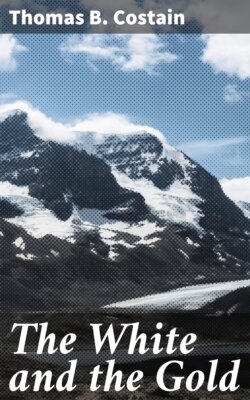Читать книгу The White and the Gold - Thomas B. Costain - Страница 7
На сайте Литреса книга снята с продажи.
3
ОглавлениеTable of Contents
The second expedition proved a failure because it started with a faulty objective. Cabot expected to find open water to the north of the new continent which would provide a route around the world. The ships arrived first at Newfoundland, which the leader called the Isle of Baccalaos because the natives used that name for the fish abounding in the waters thereabouts. Later it was learned that the Basque people used the same word for codfish, and this raised the suggestion that Basque ships had preceded Cabot in reaching this part of the world. From Newfoundland the fleet turned north in pursuit of that mirage, the Northwest Passage. They found themselves soon in seas filled with icebergs. This was disconcerting, but nothing could shake their conviction that they must sail ever northward.
Sebastian Cabot, the second son of the commander, was with his father, and it is from a later document, based entirely on his recollections, that the story of the expedition is drawn. Although the season was now well advanced, the majestic icebergs rode the seas in such numbers that there was constant danger of collision. The shores were bare and inhospitable, becoming less and less like the rich lands of Cathay which they sought. At one point, which was believed later to have been Port of Castles, the commander was convinced that he had discovered the mythical Island of the Seven Cities, and there was much excitement as a result. He had mistaken the high basaltic cliffs for the turrets of castles. He persisted in his error sufficiently to report the occurrence later, but it is clear that at the time no effort was made to get closer to where, presumably, the descendants of the seven bishops still lived.
The weather became so cold and uncertain that the northward probe had to be abandoned. Sick at heart and still convinced that the route around the world lay in the north, they finally gave up the quest and turned back.
A determined effort was made then to find some source of wealth in the lands lying south of Newfoundland. The fleet took a south-westerly slant which carried them to Cape Breton and Nova Scotia. Sebastian Cabot, who later achieved a high reputation as a cartographer and maritime authority generally, seems to have possessed the highly unscientific habit of exaggeration. His report of the last part of the journey leaves the impression that the ships from Bristol sailed as far south as the Carolinas, but this obviously was impossible, for they were back in England before the end of the summer. They had found nothing new, they had not seen a single inhabitant, their reports depicted the new continent as bare and grim and, above everything else, silent. They brought back nothing to compensate for the expense of the expedition save cargoes of fish.
On Cabot’s return England seemed momentarily to lose interest in North America. This strange land had nothing to offer, no silks, no gold, no precious stones. It had no castles save the glistening towers of ice which floated in the sea. The investors had wasted their money and their ships in an unprofitable venture. Lanslot Thirkill and Thomas of that ilk still had loans from the King to pay off, at a good interest, no doubt. The benefactors of Cabot’s freehanded generosity could whistle for their grants of land. The priests who were to have been made bishops returned to much humbler shares in the activities of Mother Church.
Nothing more is known of John Cabot. It is probable that he died within a relatively short time, for there is no record of the payment of the pension beyond the first two installments. His descent into oblivion was rapid and complete. His son Sebastian lived to a ripe old age and held important posts under the rulers of Spain. His boastfulness as to the part he had played in the explorations of his father made him the central figure in bitter controversies centuries after his death; into which it would be unprofitable to enter here.
England had lost a great opportunity. Nothing was done to colonize the lands which Cabot had found, although the fisheries of Newfoundland were developed by enterprising captains from Bristol, St. Malo, and the Basque and Portuguese ports. While Spain was achieving world leadership through the wealth which followed her vigorous conquest of the continent Columbus had discovered, the Tudor monarchs made only ineffectual efforts to follow up the discoveries of Cabot.
Small things have often swayed the course of history. If an arrow shot into the sky had not lodged in Harold’s eye, the Normans might conceivably have been defeated at Hastings. Two centuries after Cabot’s death a merry little tune, whistled and sung to seditious words and called Lillibulero, would play quite a part in ousting a bad king from the throne of England. Perhaps to the list this may be added: that the grant of ten pounds by a parsimonious king to the man who had found a continent may have put a damper on individual enterprise in following up his exploit and so resulted in the temporary loss of this great land which later would be called Canada.
